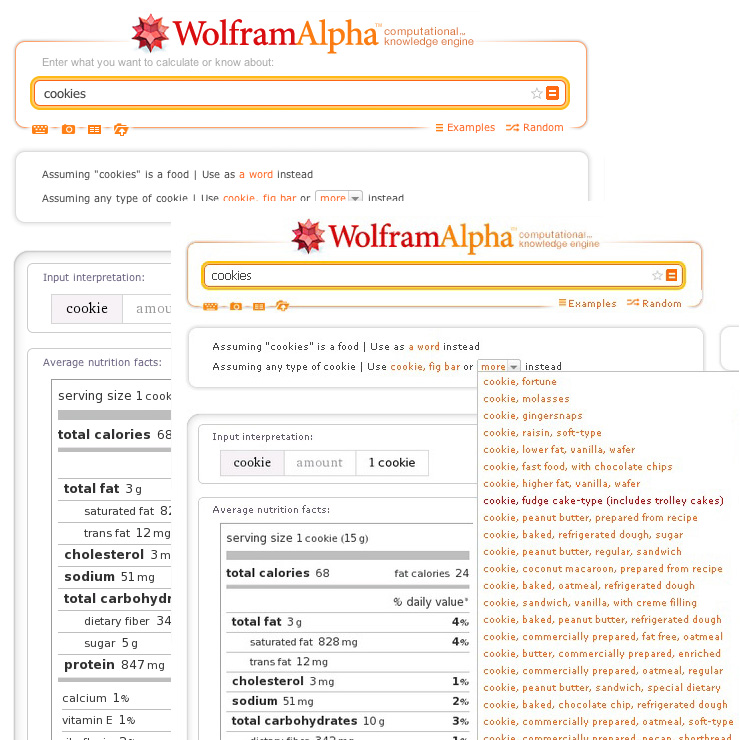Wolfram|Alpha, originally released in the spring of 2009, is a search engine unlike most. Rather than searching for webpages that contain words or phrases, it will take your query and try to interpret it, giving you a freshly drawn answer based on trillions of pieces of curated data and thousands of algorithms for linguistic analysis and computation. The creator, widely accomplished British scientist Stephen Wolfram, calls three-year-old Alpha his third big life project. The ambitious long-term goal: to bring to the public a service that makes all systematic knowledge available and computable in an instant.
Wolfram|Alpha is best used to conjure up an organized, factual answer to a very specific question or to find general, usually very comprehensive information about a specific item, provided the relevant data is available. As it is now, in its relatively greenness, the engine is most useful for those doing work in scientific or technical areas of study. It’s still useful, though, for anybody conducting research because it can pull together data from primary sources. It also neatly organizes information into tables and provides a complete list of sources that can be found linked to the bottom of a “search” result.
The www.wolframalpha.com homepage presents you a pretty typical-looking search bar.

Guess what? Here you ”enter what you want to calculate or know about.” Let’s say we want to know about cookies. You know, in general. (Later, try clicking on the icons below the search bar to see more of what you can do with Wolfram.)
After a few seconds we’re presented with extensive amounts of nutritional information about cookies, “averaged over different types of cookie.” Note that under the search bar there’s an explanation for your search result. “Assuming ‘cookies is a food’,” and we’re curious about “any type of cookie,” Wolfram shows you the calculated, tabulated data below. If you want to know about a specific kind of cookie, you’re provided with a drop-down menu list of different kinds to scrutinize.

It’s also pretty important to keep in mind that Wolfram is deeply different from Google Search. When you Google something, you’re likely to come by pages with the whole phrase or parts of it in your results because those pages were written by a human person as well; whereas when you search on Wolfram, you absolutely have to ask questions that can be understood by the engine. Until computational linguists master the elusive art of programming machines to fully understand human languages, we’ll have this kind of limitation. So if Wolfram isn’t able to answer your question, you might just need to rephrase it, or it may just be that there isn’t enough published data in the world to compute an answer. This shouldn’t discourage you though: the folks at Wolfram understand the issue and to help get people started, provide users with an extensive page dedicated to offering up searches over a wide range of topics. In short, there is a vast amount of knowledge made available to you by this service and if you’re a math or science student, if you’re just curious, or if you really want to cheat in online Scrabble, we strongly recommend a look-see.
Also, in more recent news, Wolfram Alpha Pro just debuted this month. For a bare $2.99/month, the Pro version brings students an augmented Wolfram search engine that can analyze more than words–it can interpret your own tabular or raw, numeric data as well as whole images. It also offers more detailed search results and a nifty extended keyboard, allowing users to enter at will Greek symbols, arrows, and commonly used glyphs with great ease. Again, the upgrade currently costs only $2.99/month for students and $4.99/month for everybody else–ha!
Still interested? Check out this Guardian interview with Stephen Wolfram about Wolfram|Alpha here.

[…] engine out there. Other ways of searching for answers on the web are growing in popularity. See how Wolfram|Alpha is just one great […]
This search engine is so useful. I think it’s the one that the iPhone’s Siri often uses, too. Great article!